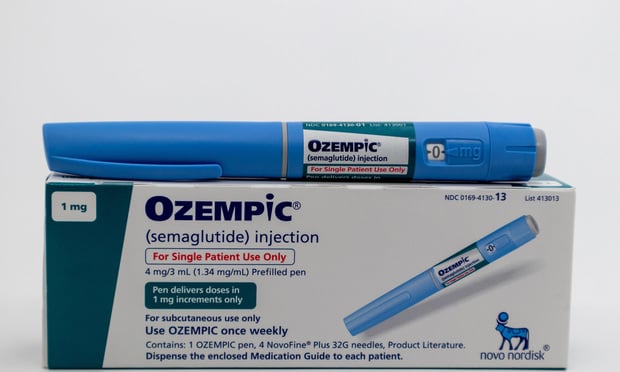 “To deny apatient this treatment, if it is available, is immoral andbarbaric,” wrote U.S. District Judge Robert Scola. (Photo:David Handschuh/NYLJ, ALM)
“To deny apatient this treatment, if it is available, is immoral andbarbaric,” wrote U.S. District Judge Robert Scola. (Photo:David Handschuh/NYLJ, ALM)
A federal judge who survived prostate cancer has stepped downfrom a putative class action lawsuit over a healthinsurance company's “immoral and barbaric” denial ofa radiation treatment.
|U.S. District Judge Robert Scola on Monday recusedhimself from Richard Cole v. UnitedHealthcare Insurance Co. in the Southern District ofFlorida — a case in which prominent Miamilitigator and Cole, Scott & Kissane managingpartner Richard Cole is the named plaintiff.
|The judge wrote that his own life-saving experiencewith the treatment at the heart of the lawsuit—protonradiation, which United Healthcare Co. does not cover—plusa friend's six-figure medical bills for cancer careprevented him “from deciding this case fairly andimpartially.”
|Scola wrote that his friend “fortunately … had theresources to pay $150,000 for the treatment,” but that UnitedHealthcare agreed to reimburse him “only upon threat oflitigation.”
|“To deny a patient this treatment, if it is available, isimmoral and barbaric,” wrote Scola, who did not respond torequests for comment by press time.
|
Read theorder:
Cole, the plaintiff in the case, helps lead Florida'slargest personal injury law firm. He was diagnosed withprostate cancer in April 2018. He filed a putative class actioncomplaint against United Healthcare on April 3 after thecompany refused to cover proton beam radiation therapy used toreduce tumors.
|United Healthcare has said it declined coverage becausethe therapy is experimental and unproven.
|Spokeswoman Maria Gordon Shydlo said Monday the company “basesits medical policies and coverage decisions—including for protonbeam therapy—on the prevailing published clinical and scientificevidence.”
|The company responded to a story by CNN in August2018 that there is “no credible evidencethat proton beam therapy is safer or more effective than the provenand covered treatments that are the standard of care for cervicalcancer.”
|But Cole's suit suggests otherwise and alleges thecompany has maintained a uniform policy of denying coverage forproton therapy—a move that Cole says has cost him about $85,000 outof pocket. It also alleges the treatment is well-acceptedin the medical community because it “minimizes collateral damage tohealthy tissue around the tumor.”
|“The claim is for breach of fiduciary duty, and we'realleging that United Healthcare did not act solely in theinterest of [Cole],” said plaintiffs counsel StephanieCasey, partner at Colson Hicks Eidson in CoralGables. ”There's nothing experimental or investigationalabout proton beam radiation therapy for the treatment ofprostate cancer.”
|'Cancer-free'
Cole said he repeatedly challenged United, butthe insurer denied him at every turn and at one point used anexpert who “wasn't even an oncologist” to justify its coveragedecision.
|“I don't think they took my condition or treatment as seriouslyas they should have,” he said Monday.
|With his claims rejected, Cole footed the medical bills andunderwent treatment at the Miami Cancer Institute.
|“I'm glad to report that I finished the treatment in aboutOctober of last year,” he said. “I have gone back twice now foradditional studies, and I am cancer-free.”
|The suit names as potential class members any UnitedHealthcare policy holders denied similarcoverage. It aims to have the insurer reprocess allclaims nationwide for proton beam radiation therapy totreat prostate cancer, and make decisions on a case-by-case basis,instead of issuing blanket denials.
|Cole said Monday he would donate any award from the case to theMiami Cancer Institute, where he underwent treatment.
|The case is not the first time a South Florida lawyer has filedsuit against an insurance company over treatment.
|In 2017, after Blue Cross and Blue Shield of Florida Inc. deniedhis wife's claim, Coral Springs attorney Mitchel Chusid filed a class action lawsuit to compel thecompany to cover Zejula, a drug manufactured to treatrelapsed ovarian cancer patients.
|“We were able to get Blue Cross and Blue Shield to approveZejula [for coverage],” Chusid said. “I think it's despicable thatthese insurance companies have the power to play God and controlmedication that could save people's lives.”
|Now, a new attorney-piloted suit is in the spotlight.
|And the federal jurist who stepped down became the second judgeto recuse himself from the case. Scola's recusal followedone by U.S. District Judge Federico Moreno, who steppeddown from the litigation because of his friendship with theplaintiff.
|The case is now assigned to U.S. District Judge UrsulaUngaro.
||
Read more:
Complete your profile to continue reading and get FREE access to BenefitsPRO, part of your ALM digital membership.
Your access to unlimited BenefitsPRO content isn’t changing.
Once you are an ALM digital member, you’ll receive:
- Critical BenefitsPRO information including cutting edge post-reform success strategies, access to educational webcasts and videos, resources from industry leaders, and informative Newsletters.
- Exclusive discounts on ALM, BenefitsPRO magazine and BenefitsPRO.com events
- Access to other award-winning ALM websites including ThinkAdvisor.com and Law.com
Already have an account? Sign In
© 2024 ALM Global, LLC, All Rights Reserved. Request academic re-use from www.copyright.com. All other uses, submit a request to [email protected]. For more information visit Asset & Logo Licensing.








